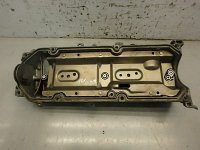Thanks Bernie ;-) And also that oil filter - I mentioned that I'm using BOSCH P2041 (EAN code: 3165141830484) with specifications:
Opening pressure of bypass valve - 0.12 bar
Opening pressure of circulating valve - 1 bar
And here I'm not sure if it's ok....
Opening pressure of bypass valve - 0.12 bar
Opening pressure of circulating valve - 1 bar
And here I'm not sure if it's ok....


